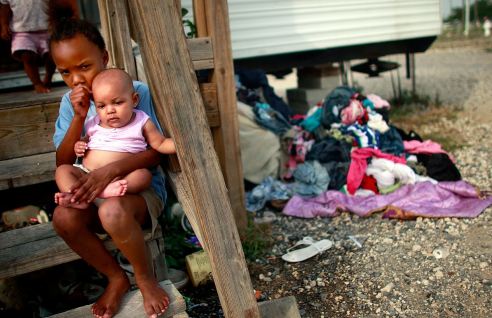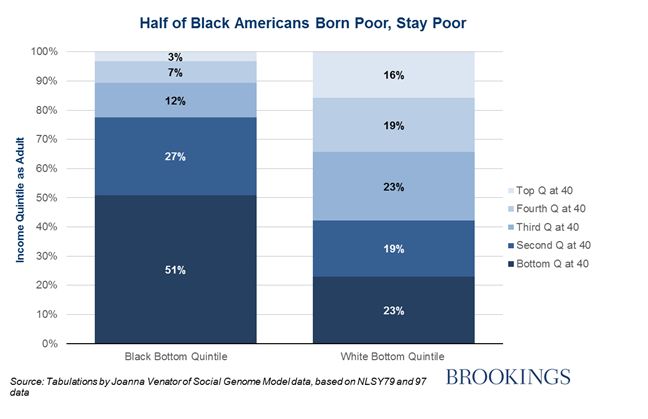Black Americans Who Are Born Poor Will Stay In Poverty Forever
According to a new study on HuffPo, Black wealth doesn’t really exist in the African American community compared to other races.
Upward mobility from the bottom of the income distribution is much less likely for black than white Americans: 51% of the black Americans born into the lowest fifth of the earnings distribution remain there at age 40.
Downward intergenerational social mobility from the middle to the bottom is much more common among Black Americans. Seven out of ten black Americans born into the middle quintile fall into one of the two quintiles below as adults. In some ways, this is an even more depressing fact than the poor rates of upward mobility. Even black Americans who make it to the middle class are likely to see their kids fall down the ladder:
Race gaps in wealth – already wide – widened further during the Great Recession. The median wealth of white households is now 13 times greater than for black households – the largest gap in a quarter century, according to analysis by the Pew Research Center. Black median wealth almost halved during the recession, falling from $19,200 in 2007 to $11,000 in 2013.
Black children are much more likely to be raised in a single-parent household, and as our own research suggests, family structure can play a large role in a child’s chance of success in all stages of life.
How does education play a part in this?
The school system remains highly segregated by race and economic status: black students make up 16 percent of the public school population, but the average black student attends a school that’s 50 percent black. Our colleague Jonathan Rothwell shows that the average black student also attends a school at the 37th percentile for test score results whereas the average white student attends a school in the 60th percentile.
There are race gaps in almost every conceivable social and economic dimension, many of which we have discussed on these pages before: incarceration, early learning, parenting, schooling, attitudinal racism, employment – the list goes on. There has been progress, too, of course. But one thing is clear. An inescapable requirement for building an opportunity society is improving the life chances of black Americans.
Discuss.
Mario Tama/Getty Images










Comments
Bossip Comment Policy
Please read our Comment Policy before commenting.